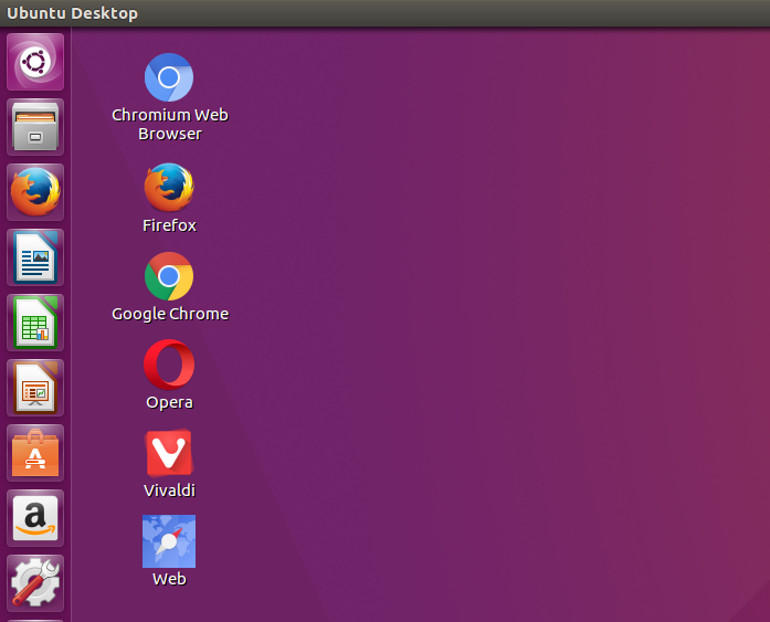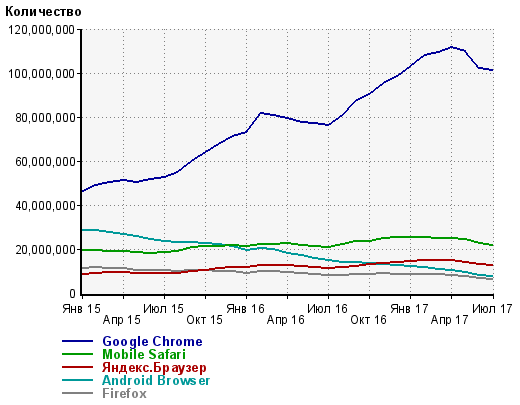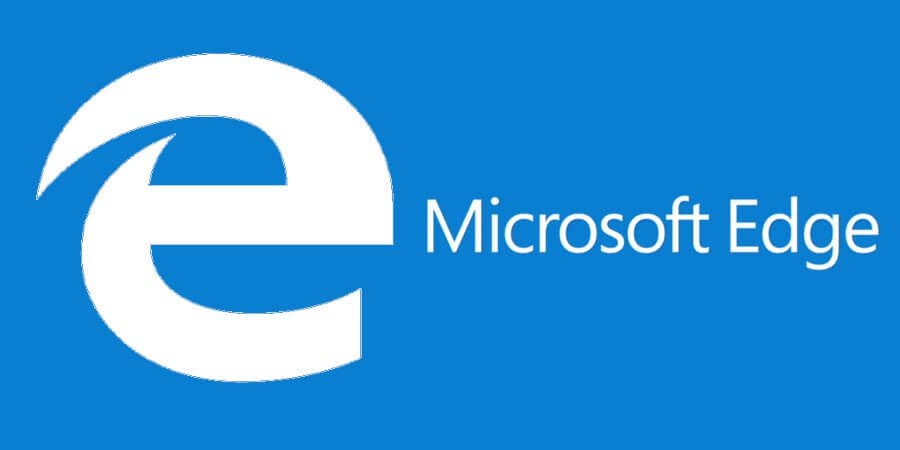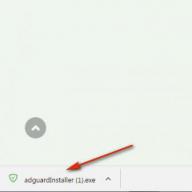There are many different browsers for operating system Linux There are such popular products on all platforms as Firefox, Google chrome and Opera, as well as less well-known and developed only for Linux - Konqueror (KDE browser) or Gnome Web (browser for Gnome).
If you look at the results of a recent LinuxQuestions poll, popular browser for Linux, it's Firefox. He received 51.7% of the vote of users, in second place Chrome, 15.67%. Other browsers scored only a few percent. Firefox is the most popular among users, but is it really the most fast browser Linux? We will try to understand this question in this article.

What was tested?
For testing browsers on Linux, the stable version of Ubuntu 16.04 was used. It launched on the Asus CM6730 with a third-generation Intel Core i7-3770 processor with a frequency of 3.4 GHz. Video card NVIDIA GeForce GT 620, also uses 8 GB in the system random access memory.
The most popular browsers were selected for the test: Firefox 51, GNOME Web 3.22 (Epiphany), Google Chrome 56, Chromium 56, Opera 43 and Vivaldi 17.7. Each round of testing was carried out with a freshly installed browser without additional settings after rebooting the system.
The fastest Linux browser
JetSteam 1.1
This is a JavaScript speed test, it is based on the already outdated SunSpider. Several tests are combined here, on the basis of which a general performance assessment is derived. The kit includes tests from SunSpider 1.0.2 and Octane 2. There are also tests from the open source project. source code LLVMs compiled in JavaScript using the Emscripten 1.13 project. It also includes the HashMap tests from the Apache Harmony project, as well as the Java Cdx real-time test, also translated into JavaScript. In this test, the higher the score, the better.
Now let's see how browsers behaved in testing:
- Chromium — 180,89;
- Chrome — 179,77;
- Opera — 178,84;
- Vivaldi — 176,84;
- Web — 172,94;
- Firefox — 163,38.
The result is not quite what it could be expected. Chromium came first, and Firefox came last.
Kraken 1.1
This is another test similar to SunSpider, which allows you to measure JavaScript performance. In addition to basic tests, measurements of the execution of typical scenarios are added here. The test was developed in mozilla. The lower the result, the better:
- Opera - 988.84 ms;
- Chromium - 989.5 ms;
- Chrome - 993 ms;
- Vivaldi - 988.4 ms;
- Firefox - 1,088 ms;
- Web - 1,121 ms.
As you can see, here, too, the browser with the Chrome engine remains in first place, and Chromium in the second. The trend of the slowest is also preserved, it is Firefox and the Web.
Octane 2.0
Octane 2.0 is Google's JavaScript performance test. It includes testing scripts of modern interactive web applications. It is designed not only for Chrome, Microsoft TypeScript compilation speed can also be measured here. Although Octane has recently been deprecated, it will participate in this testing. The higher the score, the better.
- Google Chrome - 31,737;
- Chromium - 31.454;
- Opera - 30.979;
- Vivaldi - 30.772;
- Firefox - 30.628;
- Web - 27.949.
The difference in performance between browsers is not so great, but the distribution of positions is already quite expected.
Speedometer
Speedometer is a test developed by WebKit in order to test the performance of the browser itself, to evaluate how quickly it responds to user actions. To mimic the user's work, the TodoMVC framework is used. Speedometer repeats the same steps using the DOM API. This kit is often used in web applications. Testing is also performed for six different frameworks: ember.js, Backbone.js, JQuery, AngularJS, React, and Flight. Results are measured in actions per minute, the more the better:
- Google chrome — 113,2;
- Vivaldi — 112,3;
- Opera — 108,5;
- Web — 107,2;
- Chromium — 97.23;
- Firefox — 44,6.
It is no longer surprising that Google Chrome is in the first place, Chromium dropped very strangely, and Firefox showed the most terrible result.
WebXPRT
WebXPRT is currently the most comprehensive browser test. It uses special scripts to simulate everyday tasks and test their speed. It contains six HTML 5 tests and JavaScript load tests, including: image processing, sorting an album, selecting flags, local notes, graphics. The higher the score, the faster the Linux browser:
- Firefox — 353;
- Web — 294;
- Chrome and Opera — 282;
- Vivaldi — 244;
- Chromium — 231.
Finally, Firefox broke into first place, Google Chrome is in the middle, and Chromium showed the worst result.
HTML5 Test
The last thing to check is how much each browser complies with the HTML5 standard. This test is not a standard, it just shows how well the capabilities of the browser are synchronized with the latest version of the standard. The ideal opener that no browser has received is 550. If your browser has problems implementing the HTML5 standard, this does not mean that it is slow.
- Chrome — 519;
- Vivaldi — 517;
- Opera — 512;
- Chromium — 505;
- Firefox — 471;
- Web — 386.
In the first places, browsers from Google, Firefox and Web, as usual - in the latter. But as I said before, if your browser does not fully support HTML5, this does not mean that it is not a fast browser.
Vivaldi Small Browser:
conclusions
If we summarize the results of all tests, then Google Chrome is the fastest Linux browser, HTML 5 is best supported here and it gives the highest results in tests, Chromium can also be used, it's almost the same. You can also look at Opera and Vivaldi, which are not so fast, but not much behind. Firefox, unfortunately, is one of the slowest, and on the Web in general it is not worth paying attention due to its poor compatibility with HTML5. What browser do you use? Write in the comments!
The most popular browser in the world is dying. Microsoft in the new Windows 10 early shipped Internet explorer on retire. This web viewer is still part of the standard software, but it is used only in extreme cases, for example, to display pages that work with ActiveX, or to support services designed specifically for specific enterprises.
The new standard browser for Windows 10 is called Microsoft Edge. It is based on a minimalist design inspired by Google Chrome, and the operation is carried out through the new Edge HTML engine. However, users cautiously perceived the advent of a new web viewer.
A month after the release of Windows 10, this system was installed on approximately 75 million devices worldwide. If you look at the statistics, it turns out that no more than half of the owners of computers running Windows 10 connect to the Internet through Edge. We found out what IE's successor is capable of and compared this new browser with Chrome, Firefox, Internet Explorer, Opera and Vivaldi.
Everything is decided by modern technology
Our test clearly showed that nothing can be achieved with the old methods. Outlived his internet browser Explorer takes the last place. It is slow, poorly equipped and difficult to manage. Having earned a general “satisfactory” rating, he still got off easily.
Other browsers are better, and this is primarily due to the use of modern technologies. Unlike Internet Explorer, the rest of the participants are either completely rebuilt (Chrome, Edge), or right now they are going through the modernization phase (Firefox), or are based on Chromium, like Chrome (Opera, Vivaldi).
When testing these three products on the basis of similar principles (Chrome, Opera and Vivaldi, which is still not quite ready), they seriously break away from competitors. They all use the same HTML rendering engine (Blink), as well as the same JavaScript environment (V8).
But, as the test results show, even with identical engines there is always a range of possibilities. In terms of speed, Firefox and Microsoft Edge are clearly behind. The first is not much ahead of the second only due to more convenient management and equipment. At the same time, Edge is more modern in technical terms. Mozilla should not be delayed with the upgrade, otherwise the "fox" will also be left behind.
Hello. In this article, I decided to talk about browsers - programs that users use to access the Internet. At the moment, their number exceeds tens, so you need to figure out which is the best browser you can choose for Windows 10 in 2017. Naturally, upon receipt new information the data in the article will be updated, so I advise you to keep the site in bookmarks and follow the news.
Choosing the best browser for Windows 10
By the way, not necessarily for dozens. The relevance of the topic is wide, so you can use any of these browsers on Windows 7 and 8. Also, these statistics do not call you to abandon your favorite tool, you can use absolutely any browser that you like.
1 - Google Chrome as the best browser
This browser is probably the best of them all. Why? Now let's figure it out. Google Chrome is a fairly powerful tool, it works correctly on weak PCs and is available for any operating system that currently exists. With each browser update, something new is added, but most importantly, errors and bugs are fixed. For example, in one of latest versions the problem with the consumption of RAM was fixed, and then a significant plus for those who do not have so much.
If you look at the well-known and popular statistics of LiveInternet, you can see a large gap between Google Chrome and other browsers. Do you also use Chrome?
 Google browser Chrome rushed forward
Google browser Chrome rushed forward
Interesting materials:
Now, let's list the main advantages of Google Chrome:
- Work speed: Undoubtedly, the browser wins here. It works quickly even with a bunch of plugins installed. The only drawback at startup is that Chrome is second only to Microsoft Edge, which launches instantly on Windows 10, and Chrome somewhere in 1-3 seconds. If you're interested, about speed chrome works in comparison with other browsers, go to this resource, where various tests are provided.
- Security: If you are trying to download a malicious file, the browser will not let you do it. Therefore, you do not have time to infect the computer. And all because the Chrome database has its own virus data. Also, the browser will warn you about the transition to resources that are suspected of placing malicious code on their pages.
- Constancy: in other words, the program interface is very simple and convenient. All functions are located in their places and do not cause questions. No need to open the search engine to type the desired query, you can use address barthat a particular search engine is tied to. By the way, it can be changed in the settings.And Chrome very rarely slows down and crashes for unknown reasons, how much I use it, probably for six months, or even a year, something lagged only once.
- Extensions and Plugins: in Google Chrome, or rather in the extension store, you can find plugins for every taste, do you need bookmarks? I can recommend the extension " Visual bookmarks"Or" X New Tab Page. " There are hundreds, if not thousands, of such add-ons.
- Okay-google function: You say OK Google and immediately any phrase that you want to find. It is also implemented as on smartphones. I personally do not use it, only if from a smartphone. In other browsers I have not seen this feature, but maybe it is implemented using plugins.
Disadvantages of Google Chrome are also available:
- For fall weak computer with a small amount of RAM can slow down.
- It weighs a lot, compared to peers.

2 - Opera Browser
This is exactly the browser that I have been using since 2010. He himself appeared in 1994. Then it was one of top browsers, especially better than Internet Explorer. In 2013, Opera quickly switched to the new Blink engine, which it created google company. At first, the previous functionality of the Opera was redone, which led to the dissatisfaction of some users, but later the old look of the browser led to its original state.
Now this program also supported by all known devices and systems. Opera Software itself presents its product as “the fastest browser in the world,” and they almost guessed it.
Pros Opera
- Page Download Speed: A well-known feature of the Opera is the Turbo mode, which allows you to speed up the loading of sites several times. The browser also surpasses its competitor Chrome in stability on weak PCs.
- Traffic saver: This feature will be useful at the present time when unlimited Internet has been removed from almost all providers and tariffs. Opera is very good at sending and transmitting traffic.
- Built-in bookmarks bar: If you look at pure Google Chrome without any extensions, then there is another drawback - the lack of a normal bookmarks bar (not the top bar). Of course, bookmarks are automatically added as you visit sites, but I do not like it, and I want to add the necessary bookmarks myself. In Opera, this is implemented immediately.
- Ad and virus blocking: another browser that can independently deal with some types of advertising and virus software. It will not allow you to save a file on your computer that has malicious code.
- Ability to install extensions: as you can see, in Opera you can also install extensions and plugins, although they are not so many as in Chrome, but enough for the average user.
- VPN: because of this, Opera could be put in the first place. I think you are aware of what a VPN is. With this function, you can go to blocked sites, you do not need to install any programs, extensions, and more. Everything is already there.
- Battery Saving: I don’t know how you do, but Google Chrome eats up energy on my laptop more than all applications taken together. Opera in this matter succeeded and was able to achieve 50% battery safety.
Cons Opera
- Compared to Google, Chrome can skip many malicious sites.
- Because of high technical specifications there is a possibility that it will not open on old equipment.

3 - UC Browser
Everyone’s favorite browser for Android has long since moved to a PC and works on any system. Developed by UC Browser on its own core. As a result, we have a great browser in terms of design and speed.
Advantages of UC Browser:
- It works on any operating system.
- It works quickly, economically and stably. Minimum brakes.
- Possibility to pause file upload. Many browsers do not allow this, since downloading resumes again after resuming.
- Compared with the opera, it can compress the transmitted traffic up to 85%, and also quickly load the resource page.

4 - Firefox
The Firefox browser appeared in 2002, not so long ago, but was able to gain popularity. I only like this tool in terms of design, but in speed it is inferior to all the browsers listed above. Let's look at the benefits of a fox:
- Modernization: Firefox is unique in that it has much more extensions for various needs than in Chrome, you can also customize it by making it unique. There is also a function about: config, which also implements a browser for itself.
- Special side panel: this panel is called by the combination of Ctrl + B. After that, all vital functions are available to you from there.
Cons of Firefox:
Work speed: Until recently, the browser had an audience of 12 million people, but then this figure fell sharply due to real lags and brakes. And the speed of opening the browser itself is just awful. Unless with SSD everything will be more or less normal.

5 - Microsoft Edge
In 2015, at the dawn windows appearances 10 a miracle arose - Microsoft Edge. FROM internet updates Explorer intentionally refused and did the right thing given browser already dead. They made a new tool that showed itself on the good side, but there is something to work on.
Advantages of the Microsoft Edge browser:
- Speed: if we consider the launch of the browser, then the leader is without question. With both speeds, you can put in second or third place. Downloading sites is really quite fast and does not cause questions.
- Browser security: his main advantage, which was taken over from his fellow Explorer. Few people knew that Internet Explorer was famous not only for its "inhibition", but also for the safe use of the Internet.
- Reading mode: A very useful feature in which you can read your favorite articles and even books in PDF format without straining your eyesight.
- Create notes: probably one more unique opportunity in Edge - creating notes directly on the site. You saw some useful link, an interesting fragment in the article, then it can be highlighted, circled and saved.
Cons of the Microsoft Edge browser:
- Availability in Windows 10: or rather, only a dozen. But users have not lost much.
- Browser damp: In other words, Microsoft is a fairly new browser, so errors and lags may occur when using it.
- Few extensions: in the store from the strength of ten pieces typed.
- Very few features: of course, this is temporary, but there is the most necessary in the arsenal.
Conclusion
So we examined the most basic types of browsers and put everything in its place. It is not necessary to believe the statistics of this page and other data, as they change every month. Use exactly what you like.




